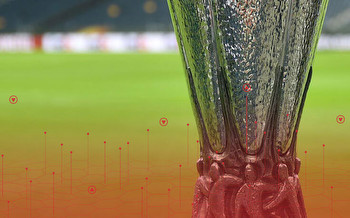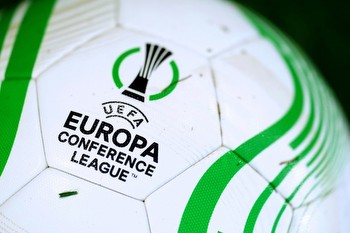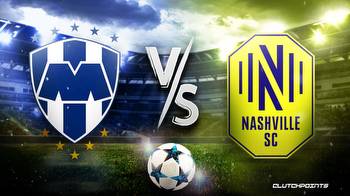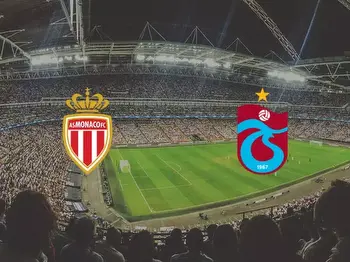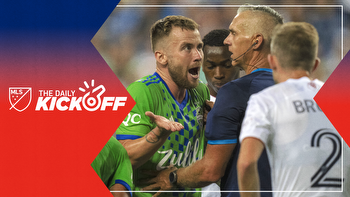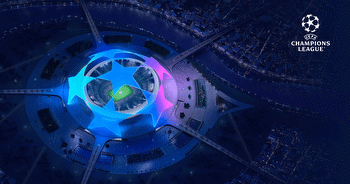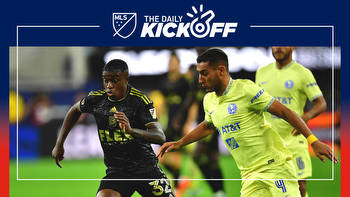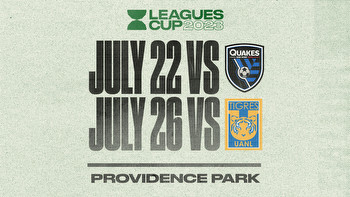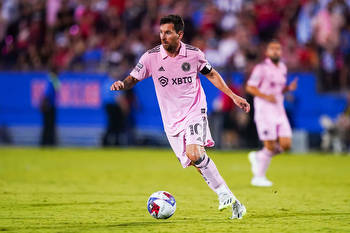What is Leagues Cup? Groups, teams, odds, and how it works as MLS, Liga MX clubs vie for 2023 trophy
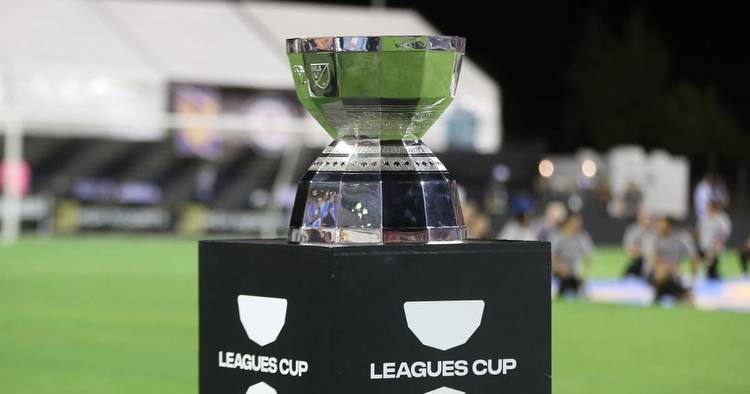
The 2023 Leagues Cup will, for the first time, see every club from Major League Soccer and Mexico's Liga MX in a World Cup-style tournament that will crown the best club team from the USA, Canada, and Mexico.
The biggest North American nations have come together to collaborate on this month-long tournament, with both leagues taking an extended break from domestic competition to allow for it.
While the Leagues Cup was held on a much smaller scale in 2019 and 2021 to test the concept, this year's edition boasts a complete field of all clubs from the two North American behemoths.
The 2023 edition of the Leagues Cup has gained significant traction thanks to Lionel Messi's debut for Inter Miami, which is slated to occur on the first day of group stage play on July 21.
What is the Leagues Cup?
The Leagues Cup is a brand new annual competition which combines Liga MX and MLS clubs together in a month-long, knockout-style competition.
While the competition was incepted and debuted in 2019, this is the first full-fledged edition of the competition as it was conceived, featuring all 47 clubs from both leagues. The winner will be assigned a qualifying slot into next season's CONCACAF Champions Cup.
The first two editions of the competition in 2019 and 2021 consisted of fewer teams and did not have a tangible competitive reward for the winner. In 2022, the competition was staged in a "showcase" manner, not even crowning a title winner as the competitors simply played a slate of friendlies.
Thus, while this year's edition is not the "inaugural" edition of the Leagues Cup, in essence it feels that way.
How does the Leagues Cup work?
The format for the 2023 Leagues Cup features a group stage and a knockout stage.
Group stage
Given the unusual number of 47 participant clubs, 45 of them were sorted into 15 small groups of three teams each, taking geographic considerations into account.
This is how the groups were formed: First, the top MLS teams were matched up with the lowest-ranked Mexican clubs and vice-versa. So the No. 2 seeded MLS team was drawn into a group with the No. 16 Liga MX seed, No. 3 in MLS vs. No. 15 in Liga MX, and so on.
Then one unseeded club was added to the mix based on geography to make for groups of three teams each.
The three teams in each group will play a round robin of matches, and the top two finishers advance to the single-elimination knockouts. The bottom team in the group is eliminated. Group stage tiebreakers start with goal differential, followed by goals scored, goals conceded, fair play points, and finally a drawing of lots.
The defending champion of each league gets a bye directly to the knockouts. In 2023, it'll be LAFC and Pachuca who will not have to bother with group stage play.
The group stage will serve to eliminate 15 clubs, with 30 advancing to join the two defending champions in the Round of 32.
Knockout stage
The knockout stage, as usual, will be single elimination starting with a Round of 32 all the way through to the final. The bracket portion pairs group qualifiers based on geography.
No extra-time will be played in any matches — games that are level after 90 minutes will go straight to a penalty shootout.
Leagues Cup groups, schedule, and dates
All matches throughout the tournament are played in the USA and Canada, meaning MLS clubs will play host for every game in both the group stage and knockout stage.
For matches involving two Liga MX clubs, an MLS stadium will host the match according to region.
2023 Leagues Cup schedule
2023 Leagues Cup groups
There are 15 groups in the 2023 Leagues Cup. For group stage matches involving two MLS clubs, the seeded team will serve as host in each group.
East 1
East 2
East 3
East 4
South 1
South 2
South 3
South 4
Central 1
Central 2
Central 3
Central 4
West 1
West 2
West 3
Knockout stage (Round of 32 matchups)
The top seed from each league — the defending champions — are given a bye to the knockout round. Here is how the entire bracket shakes out for the first portion of the knockout stage.
For knockout stage matches involving two MLS clubs, the host will be determined by group stage tiebreak criteria, just like if they were placed in a two-team group standings — points, goal differential, goals scored, etc.
Round of 32
How to watch Leagues Cup live stream, TV channel
In the USA, select Leagues Cup matches will be broadcast on cable in Spanish by TUDN and Univision, which are available to stream on Fubo, which is available to new users on a free trial.
Around the rest of the world, the English-language broadcast can be found exclusively on Apple TV, via MLS Season Pass.
Leagues Cup 2023 odds to win
The two betting favorites for the Leagues Cup title are no surprise, as Club America and LAFC stand apart as the two powerhouses from Liga MX and MLS, respectively.
However, there's a very interesting name listed just behind those — Inter Miami, who sit dead last in the MLS Eastern Conference standings. So why are they listed so high?
Lionel Messi, that's why. The Argentine great is slated to make his debut for the club in their group stage opener against Cruz Azul, and given the anticipation of his arrival, it's understandable that fans have flocked to back the club in his debut competition.
Leagues Cup winners
There have only been three editions of the Leagues Cup played previously, and only one crowned a champion.
The Leagues Cup was meant to begin in 2019, but only featured a select few number of teams from the two leagues. The tournament was cancelled in 2020 due to COVID-19, and deployment of the full competitive vision — the participation of all 47 clubs — was further delayed to 2023.
Thus, while there have been two previous winners of the competition, neither champion earned a tangible reward as part of securing the title. From 2023 on, all 47 top-flight teams from the U.S. and Mexican leagues will compete, and the title winner will earn qualification into the next year's CONCACAF Champions League.

